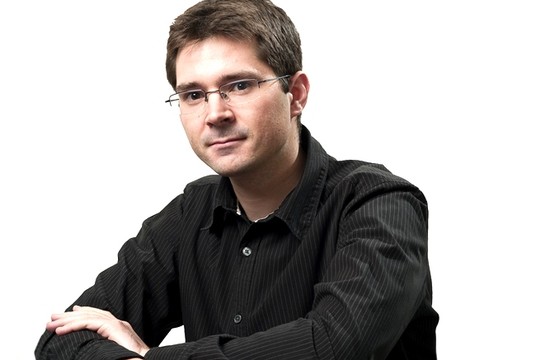
Could you first tell us about yourself and your career?
I was born in Bern, but I spent my childhood in Belgium. In 1997 I moved to Neuchâtel, Switzerland (which is the hometown of my parents), to begin my studies in Literature and Human Sciences. I obtained my degree in 2003 and, at the same time, I was hired by the Institute of Geography as an assistant. Here, I worked on several different topics such as the consequences of political asylum and the demographic evolution of cities. I also contributed to the teaching of thematic cartography. During this same period, I began my thesis in collaboration with the University of Franche-Comté, on the modernisation of stadiums and the role of football as a social integrator. Next, in 2008 I had the opportunity to join the CIES team and contribute to the development of the Professional Football Players’ Observatory – today known as the CIES Sports Observatory – which was created three years earlier by Raffaele Poli and Loïc Ravenel. In 2012 I successfully defended my Ph.D. thesis. Actually, that year was extraordinary for me, as I also married my wife and celebrated the birth of my son Quentin.
What links do you have with the world of sport ?
There are of course professional links because the researchers which I lead within the CIES are essentially dedicated to sport and more specifically to football. Away from this, in my youth I practised numerous sporting activities such as table tennis, sailing and canoeing. I was also a keen member of my local football team up to the age of 16 years before turning to indoor football, which is a very popular sport in Belgium. Today, besides indoor football which I still practise in an informal way with friends, I am a regular runner. Indeed, I have participated in several popular events such as the Morat-Fribourg or the shortest version of the 20 km from Lausanne. However, I do not like too much competition. For me, sport is mainly to keep fit and to clear your mind.
What is your favourite sport and why ?
This is a difficult question because I have great difficulty in identifying with a particular sport. In general, I have a soft spot for the underdogs or the runner-up. This is especially true for those who, despite their relative anonymity, defend the important values of fair play and respect. For me, I am not interested in the stars or large teams which have been built with millions of euros, such as PSG or Real Madrid in football. However, if I have to mention one name it would be Roger Federer. To me he is an extraordinary and exemplary sportsman. He is obviously one of the best tennis players in the history of the game and is capable of incredible shots. Longevity on the tennis circuit and his ability to manage his career intelligently are also very impressive. I admire him even more now that he has become less successful as it shows that he is human!
What are your main activities and areas of expertise within the CIES ?
My activities at the CIES are mainly related to the CIES Sports Observatory. Our research team is very skilful, which is an aspect that I really appreciate. My specialisations are focused on the analysis and creation of statistical models. However, data mining, research development – especially through our website – and the production of reports such as the Annual Review, are other important elements of my activities. Also, my skills in editing and graphic design allow me to participate in the editing of the two CIES collections - “Réflexions sportives” which CIES produces and the collection “Savoirs sportifs” published by Peter Lang.
What concrete impact has the work of the CIES had on the sports industry?
It's probably not for me to assess the impact of work produced by the CIES, but it really seems to be having an increasing influence on the sports world at different levels. Of course, the CIES is well known for its role in education with the FIFA Master, the International University Network and the courses in law, sociology and geography taught at the University of Neuchâtel. In the field of research, the CIES has also built a good reputation. Indeed, the mandates which the CIES Sports Observatory produces are extremely important in helping organisations deal with specific sports industry issues. A key strength of the CIES is definitely its role as a platform for debate and the linking of various individuals who represent different interests within the world of sport. From this point of view, the efforts made over the past few years to raise the awareness of the CIES are definitely paying-off.
What are your long-term goals for your work at the CIES ?
I wish to keep moving in the same direction which I have taken during the last few years. The CIES Football Observatory, which has a significantly increasing media profile, will soon celebrate its tenth anniversary. This demonstrates the quality of our work and also its credibility. I am very pleased to be part of the adventure.
This website uses cookies – limited to technical and analytical cookies – in order to allow your browsing and enhance your experience.
For more information, please see our cookie policy and our privacy notice.